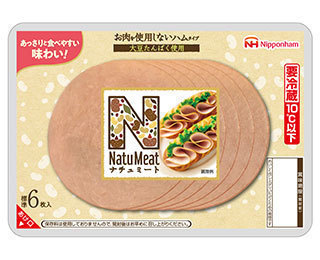02 Aug Plant Based Meats and Japanese Meat Processors
Although there has been growing interest in “non-meat” products – particularly targeting vegetarian or vegan consumers, the market is small.
There are a number of issues yet to be worked through to enable this market to grow. They include basic aspects such as “who is being targeted” or “what type of product are we trying to produce” to “are we trying to emulate the same taste or create a new ‘acceptable’ taste?”
Start-up companies, particularly in the US, have targeted the non-meat market as a growth opportunity, especially given the context of greater interest in the broader issues of sustainability, providing sufficient protein to the world’s population, and environmental concerns to name a few. It is suggested that companies pursuing this market can be broadly divided into two approaches as to how to solve the “non-meat” product conundrum – namely providing an appealing product – and for some companies not only appealing to vegetarian oriented consumers, but also the much larger market of meat-eating consumers. One pathway is the production of meat based products using plant based components – often soybean, the other is based on actually growing meat cells in a factory process.
Traditionally, the companies participating in this market segment have to view the actual ‘real’ meat producers as their competitors, even though their scale is akin to a David and Goliath contest.
In comparison to the U.S. market, the Japanese plant-based meat market has yet to gain traction, but has gradually been growing. Market research conducted on behalf of Japan’s Ministry of Agriculture Forestry and Fisheries several years ago suggested that one reason for the slow uptake compared to the US was that Japanese consumers, unlike their American counterparts were already large consumers of soya beans in their diet. Soya beans are often used as the base of non-meat products. Another reason was that in Japan the price of the non-meat product was evaluated as too expensive compared to meat. Earlier this year, one of Japan’s largest meat processing companies Nippon Ham entered the non-meat market following in the footsteps of other major meat companies such as Itoham. One Japanese startup in this market is Daiz, which focuses on the development of plant based meat.

Reasons driving Japanese meat producers
However, it is an interesting phenomenon in Japan that the major Japanese meat processors themselves have also all jumped into the plant-based meat market segment as part of a strategy to position themselves as a sort of ‘comprehensive food/meat manufacturer’. Moreover, again an interesting aspect of the Japanese companies is that these plant-based products, whilst having their own product brand name do not hide the meat manufacturer’s name and logo – thus leveraging their overall brand loyalty in their consumers.




